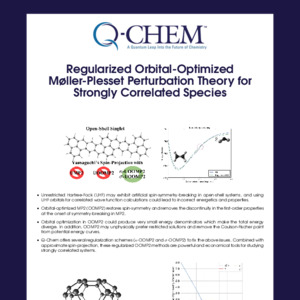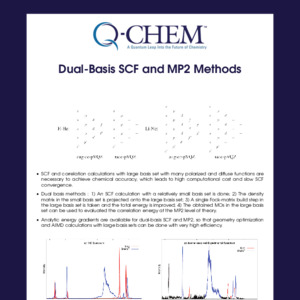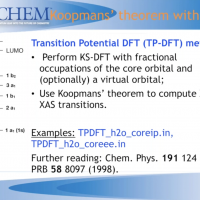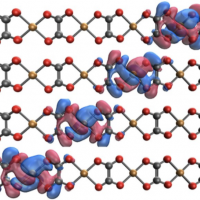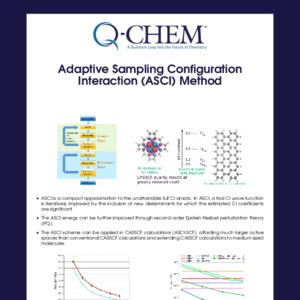Q-Chem Webinar 37
Orbital optimized MP2 in Q-Chem - A useful method without strong correlation

Martin Head-Gordon is the Kenneth S. Pitzer Distinguished Professor of Chemistry at the University of California at Berkeley and the Scientific Advisor to Q-Chem, Inc. Dr. Head-Gordon's research group centers on the development of new electronic structure theory methods, and their implementation as efficient computer algorithms. He is recognized with many awards, such as the Medal of the International Academy of Quantum Molecular Sciences (1998) and his election to the American Academy of Arts and Sciences (2011), the American Chemical Society Fellow (2012), and most recently, the Schrödinger Medal of WATOC (2020).
Abstract
In this webinar, I will describe a recent advance by Joonho Lee and myself on the orbital optimized MP2 method (OO-MP2), which regularizes the method against problems associated with small orbital gaps. Unlike DFT, this method is free of the self-interaction error. Unlike MP2 based on Hartree-Fock, it does not suffer from artificial symmetry breaking and spin contamination when applied to radicals. This regularized OO-MP2 contains no contributions from strong correlation, which means it can also be used to diagnose the presence of strong correlation via essential symmetry breaking. The theory will be described and these properties will be illustrated with examples. This method, including nuclear gradients, is available in the latest version of Q-Chem, and can be applied to reasonably large molecules.
